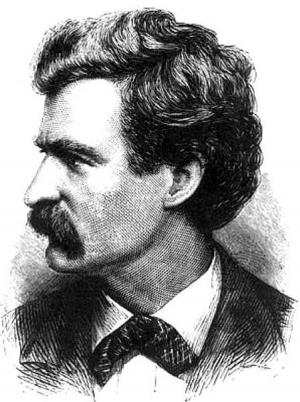The Religious Experience of the Roman People
Nonfiction, Religion & Spirituality, New Age, History, Fiction & Literature| Author: | W. Warde Fowler | ISBN: | 9781465546807 |
| Publisher: | Library of Alexandria | Publication: | March 8, 2015 |
| Imprint: | Language: | English |
| Author: | W. Warde Fowler |
| ISBN: | 9781465546807 |
| Publisher: | Library of Alexandria |
| Publication: | March 8, 2015 |
| Imprint: | |
| Language: | English |
On heresy and orthodoxy. The original meaning of the word heresy is choice. “It was long used,” writes Dr. Waddington, “by the philosophers to designate the preference and selection of some speculative opinion, and in process of time was applied without any sense of reproach to every sect.” The most fruitful source of speculative opinion is, and has ever been, religion; from the schools of philosophy to those of theology the term heresy passed by a very intelligible and simple process. The word is thrice used in the Acts to denote sect (Acts v. 17, xv. 5, and xxiv. 5), and Paul himself when on his defence before Felix and in answer to Tertullus confesses that “after the way which they call heresy, so worship I the God of my fathers.” In process of time heresy came to have a bad meaning attached to it. It is easy to see why this should be so. We naturally prefer our own opinions to those of other people. We naturally prefer the society of those who hold our own opinions to the society of those who do not. Life is short, and we do not want to be always disputing. Life to most of us is hard, and it would be harder still if after a day’s toil Paterfamilias had to discuss the three births of Christ, or His twofold nature, the Æons of the Gnostics, the Judaism of the Ebionites, the ancient Persian dualism which formed the fundamental idea of the system of Manes, or the windy frenzy of Montanus, with an illogical wife, a friend gifted with a fatal flow of words, or a pert and shallow child. We like those with whom we constantly associate. They are wise men and sound Christians. They are those who fast and pay tithes, and are eminently proper and respectable. As to the heretics—the publicans and sinners, away with them. Let their portion be shame in this life, perdition in the next. Thus it is heretics have got a bad name. Church history has been written by their enemies, by men who have honestly believed that a man of a different heresy to their own would rob an orphan, and break all the commandments. The Rev. Mr. Thwackem “doubted not but all the infidels and heretics in the world would, if they could, confine honour to their own absurd errors and damnable deceptions.” The phrase “absurd errors and damnable deceptions,” is one a real theologian might envy, or at any rate appropriate. In another sense also that hero of fiction is a type of the spirit in which orthodox people often (thankfully we record the existence of a better spirit in our day) have written on theology. “When I mean religion,” cries Thwackem, “I mean the Christian religion, and not only the Christian religion, but the Protestant religion, and not only the Protestant religion, but the Church of England.” Still the question occurs, What is heresy? It is not difficult to say what it is not. The African Bishops on one occasion, in council in Carthage, decided that heretics were not at all any part of the Church of Christ, but this opinion was modified by a later council. “Heretics,” writes Epiphanius, “are divided into two kinds: those who receive the Christian religion, but err in parts, who when they come over to the Church are anointed with oil; and those who do not receive it at all and are unbelievers, such as Jews and Greeks, and these we baptize
On heresy and orthodoxy. The original meaning of the word heresy is choice. “It was long used,” writes Dr. Waddington, “by the philosophers to designate the preference and selection of some speculative opinion, and in process of time was applied without any sense of reproach to every sect.” The most fruitful source of speculative opinion is, and has ever been, religion; from the schools of philosophy to those of theology the term heresy passed by a very intelligible and simple process. The word is thrice used in the Acts to denote sect (Acts v. 17, xv. 5, and xxiv. 5), and Paul himself when on his defence before Felix and in answer to Tertullus confesses that “after the way which they call heresy, so worship I the God of my fathers.” In process of time heresy came to have a bad meaning attached to it. It is easy to see why this should be so. We naturally prefer our own opinions to those of other people. We naturally prefer the society of those who hold our own opinions to the society of those who do not. Life is short, and we do not want to be always disputing. Life to most of us is hard, and it would be harder still if after a day’s toil Paterfamilias had to discuss the three births of Christ, or His twofold nature, the Æons of the Gnostics, the Judaism of the Ebionites, the ancient Persian dualism which formed the fundamental idea of the system of Manes, or the windy frenzy of Montanus, with an illogical wife, a friend gifted with a fatal flow of words, or a pert and shallow child. We like those with whom we constantly associate. They are wise men and sound Christians. They are those who fast and pay tithes, and are eminently proper and respectable. As to the heretics—the publicans and sinners, away with them. Let their portion be shame in this life, perdition in the next. Thus it is heretics have got a bad name. Church history has been written by their enemies, by men who have honestly believed that a man of a different heresy to their own would rob an orphan, and break all the commandments. The Rev. Mr. Thwackem “doubted not but all the infidels and heretics in the world would, if they could, confine honour to their own absurd errors and damnable deceptions.” The phrase “absurd errors and damnable deceptions,” is one a real theologian might envy, or at any rate appropriate. In another sense also that hero of fiction is a type of the spirit in which orthodox people often (thankfully we record the existence of a better spirit in our day) have written on theology. “When I mean religion,” cries Thwackem, “I mean the Christian religion, and not only the Christian religion, but the Protestant religion, and not only the Protestant religion, but the Church of England.” Still the question occurs, What is heresy? It is not difficult to say what it is not. The African Bishops on one occasion, in council in Carthage, decided that heretics were not at all any part of the Church of Christ, but this opinion was modified by a later council. “Heretics,” writes Epiphanius, “are divided into two kinds: those who receive the Christian religion, but err in parts, who when they come over to the Church are anointed with oil; and those who do not receive it at all and are unbelievers, such as Jews and Greeks, and these we baptize















